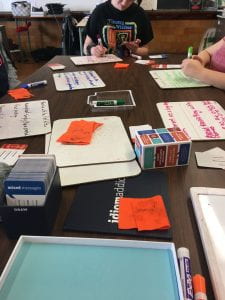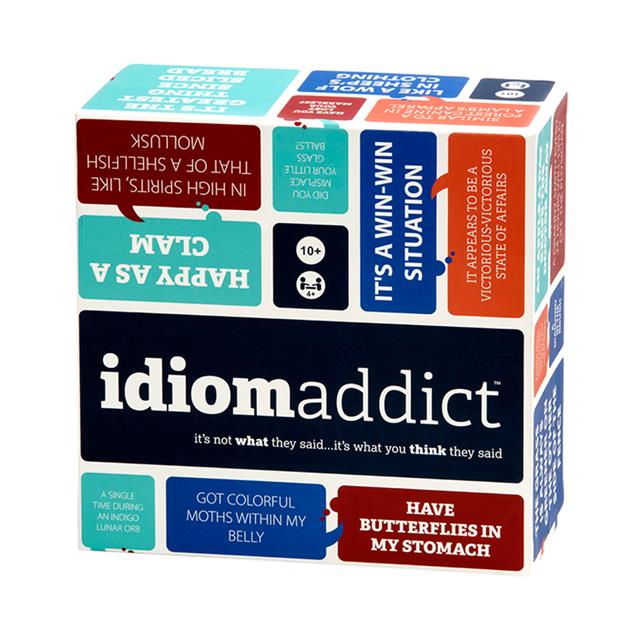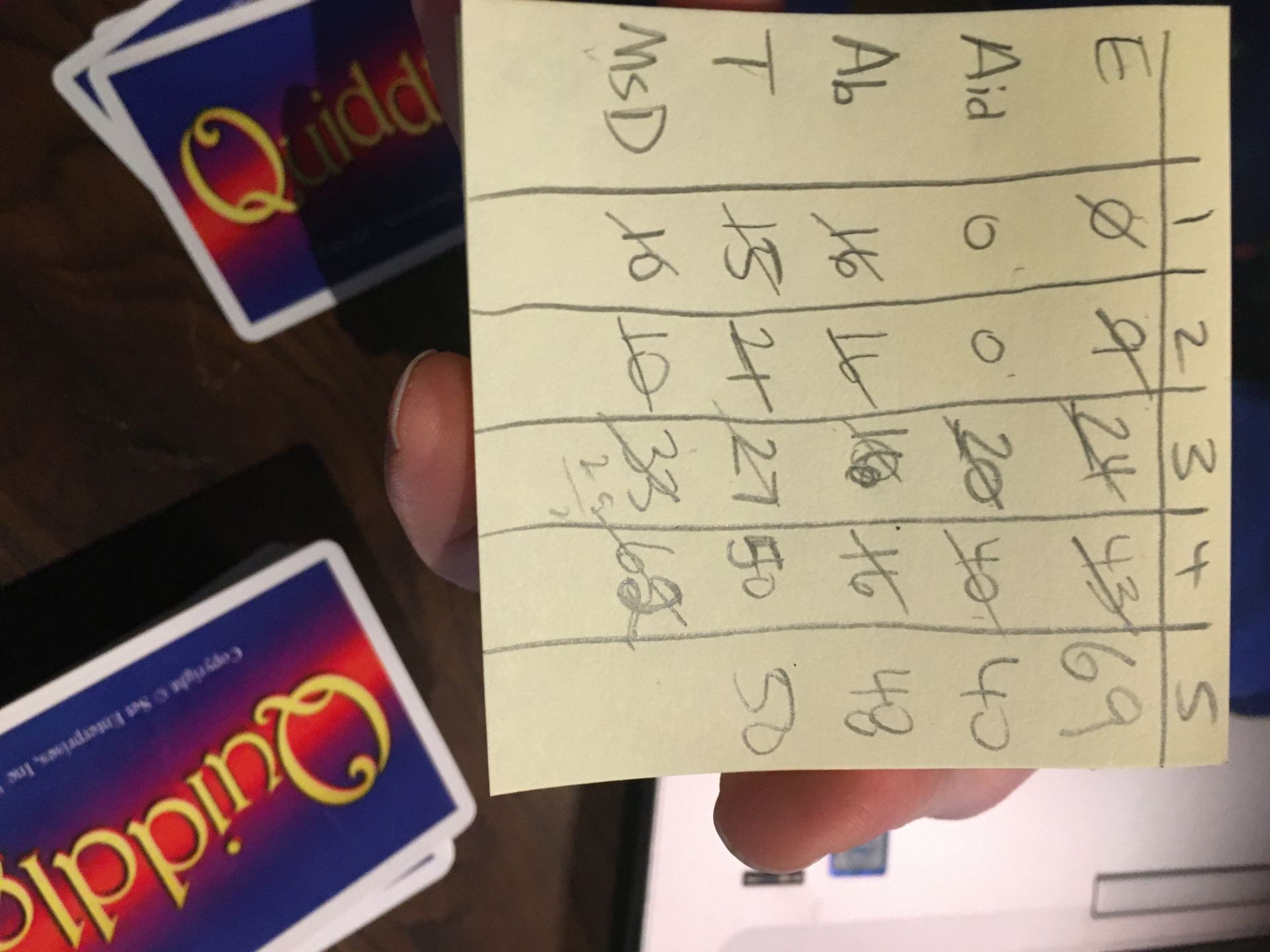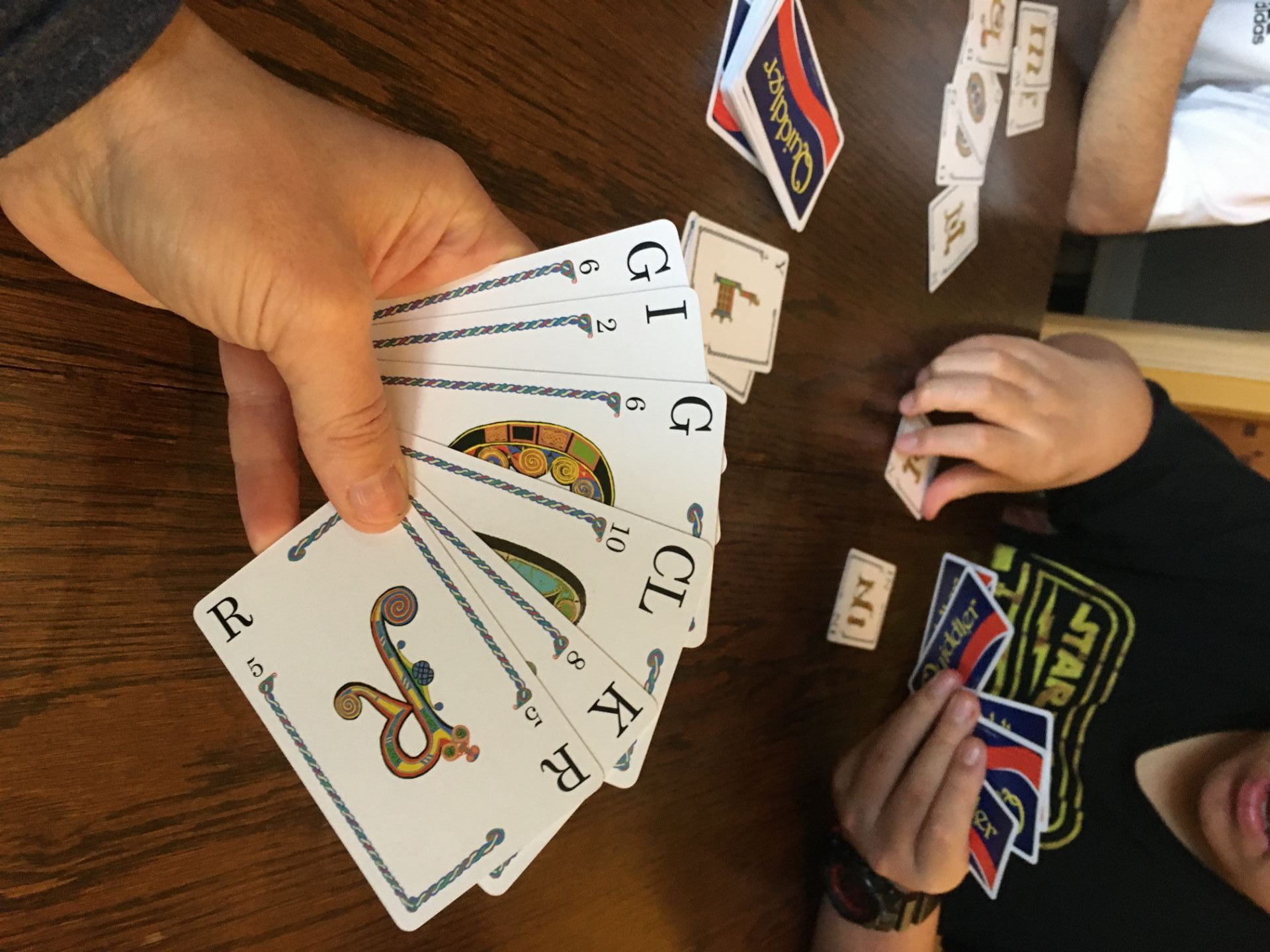In the last month or so (Covid-19 days), I have spoken to a number of students and families who are looking for some learning activities which are flexible (kids can play with their siblings), age-appropriate and off-screen. The following games are a shortlist (I’ll add some more later) of what I have used in the classroom (enrichment program) as well as at home with my own kids.
I am a proponent of game-based learning, I have spent the past year learning how to use off-line games as a way to engage my students in social and collaborative learning activities. Each of these games can be differentiated depending on the age or ability of the learner. I love games that are naturally designed for universal learning and teaching. Learners can go as deep and complex as they wish, or keep it simple.


Idiom Addict. A family favourite and can be played with a variety of ages. Some of the idioms are very difficult and need to be unpacked and discussed. A great opportunity to talk about culture and vocabulary. I enjoy using this game when working with my ESL groups. https://www.amazon.ca/The-Good-Game-Company-B07GKHJX46/dp/B07GKHJX46

Dixit Board Game – This is our favourite game. I wrote about it in another post. “Dixit, a Game for Everyone”
Board Game (highly recommended for Gifted, enriched and students with strong language, vocabulary and creative thinking skills.) Dixit is a game with very simple mechanics and rules but a lot of depth, strategy, creativity, and variety. Each player has a hand of cards with amazing artwork http://www.thefamilygamers.com/classic-reviews-dixit/

Number Scrabble: This is much harder than it looks. At first, my small groups did not like this game. But as we got into it, students began to challenge one another with more complex calculations.
https://www.instructables.com/id/Number-Scrabble-The-Game-aka-Math-Scrabble/
“Number Scrabble” (or “Math Scrabble”) is a game based on normal Scrabble, but you make equations instead of words. The letter tiles used in Scrabble are replaced with numbers and operators.

Quiddler Card Game. This game can be individualized and played with a variety of ages and levels. I play this card game often with my ESL students. It is a family favourite. Great for vocabulary practice (all ages) “Using special cards, Quiddler draws on one’s ability to combine letters into words. The challenge is to arrange your entire hand into words. Draw and discard in turn. https://www.mastermindtoys.com/8532-Quiddler-Game.aspx?gclid=Cj0KCQjw-r71BRDuARIsAB7i_QNXIBsrD4JleqygAKAL7xYEpDCLBD0GHG-Mla8tgCLORE8A_A1yBWIaAsdZEALw_wcB


The World Game: I love using this game to discuss world data. We often have our computer open to look up facts and check the information on the cards. I have played this game with children and adults and there is always a discussion and something new to learn.
https://greatcardgame.com/ Learn about the continents, flags, location, capital cities & basic facts of every country in the world. A truly fun and educational game for all ages. Kids love it.

After Words: LINK In this fast-paced, vocabulary-building game, players must name a word that matches 1 of their category cards AND begins with the letter in play
Quicktionary Card Game – This is a fun game to make at home. I have had students make it, using different levels of difficulty, topics, letters, and blends.
From: http://therathole.ca/quicktionary/ ” The game consists of 102 cards, divided into 3 types. The yellow cards give a category, for example, “a word associated with science” or “an item found in an office”. The blue cards place a limit on the word itself, for example, “has exactly one syllable” or “has more consonants than vowels”. Finally, the red cards add a specific letter or letter combination, like, “cannot contain the letter R” or “contains the letters CH”. Once 3 cards are laid out, one of each colour, the goal is to be the first person to call out a word that fits all the conditions. There are no turns, everyone plays at the same time. And I do mean everyone plays; there is no “judge”, the players as a whole determine whether or not a word is correct. In the games we played, this led to many interesting situations, like counting letters on fingers, writing down words to determine consonant to vowel ratios, and at one point, a non-player googling “foods that start with A”.

